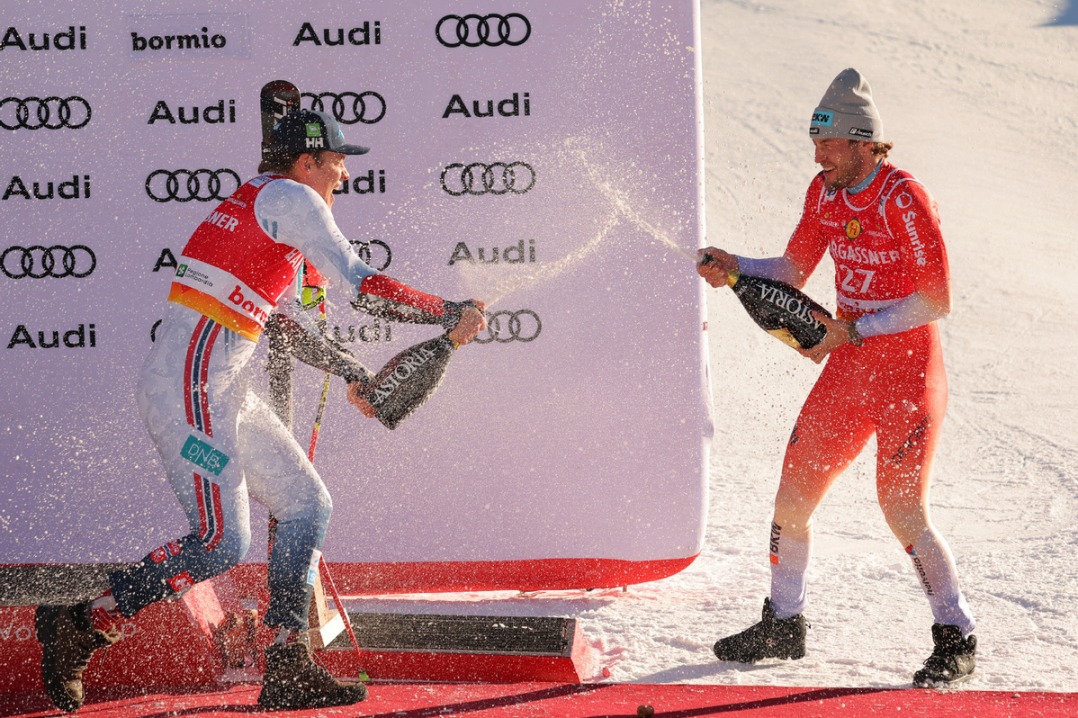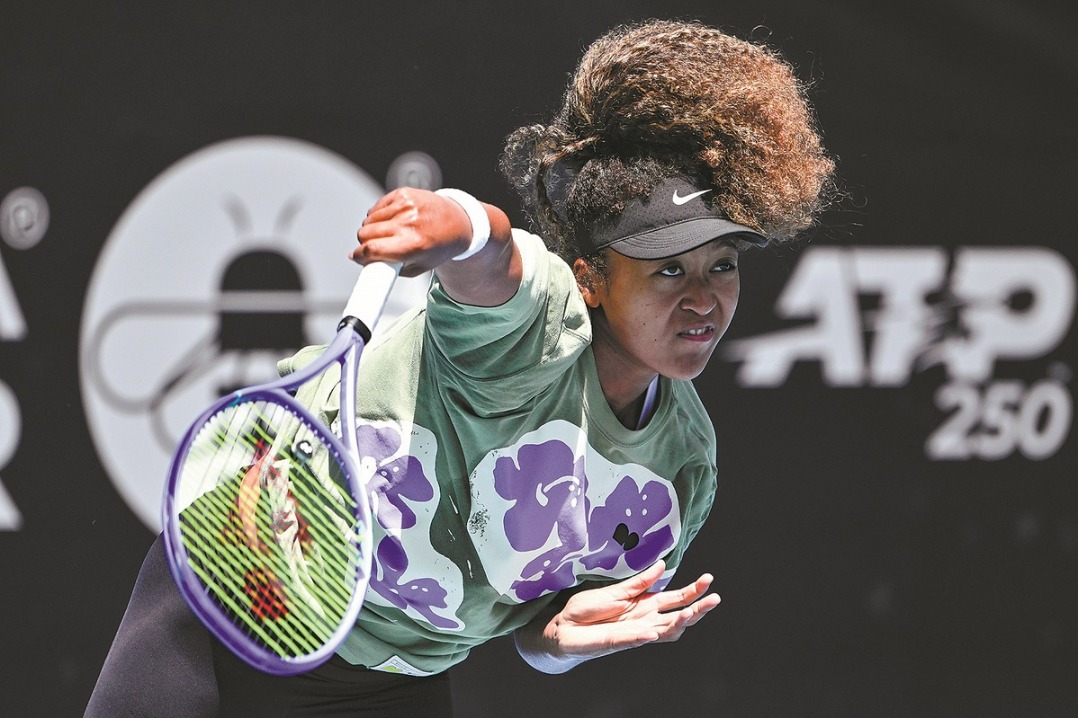WADA fight resuming full force

Yang Yang says battle against cheats back to normal as pandemic abates
World Anti-Doping Agency (WADA) vice-president Yang Yang says the organization's global fight against drugs in sports is beginning to return to normal.
The suspension of sporting events worldwide and travel restrictions caused by the COVID-19 pandemic had stymied WADA's work. However, with the coronavirus situation easing in some countries and regions, the anti-doping fight is resuming with full force.
"Public safety is WADA's top priority, while we are also protecting the integrity of doping-control programs," said former Olympic champion speed skater Yang.
"Doping tests are being conducted again in places where the pandemic is under control. At the same time, WADA has been in constant communications with anti-doping agencies around the world and athletes through various channels to answer their questions and give instructions."
Yang admitted the pandemic has posed a challenge to WADA's work but stressed that she believes most athletes want to compete clean.
"Doping usually happens while athletes are in intensive training. Lack of training during the pandemic lowers the possibility of cheating. Besides, anti-doping education also tells them a lot about the importance of being clean in sports," she said.
Whereabouts reporting, which requires athletes to submit their location to WADA to allow doping-control officials to carry out tests, has continued amid the pandemic, Yang revealed.
In addition, testing authorities have been told to focus more on athletes from sports that are considered high risk, while the "athlete biological passport", which can establish if an athlete is manipulating his/her physiological variables without detecting substances or methods, is proving to be an increasingly useful tool for WADA.
For some athletes nearing the end of their doping bans the postponement of the Tokyo Olympics comes as a welcome second chance to compete at the Games.
Although the International Olympic Committee (IOC) has endeavored to exclude athletes found guilty of doping from subsequent Games, those efforts have not been supported by the Court of Arbitration for Sport (CAS). "New problems surface along with the Olympics being pushed back for the first time in history, but cheating athletes are banned for a specific time during which they are not allowed to compete," Yang said. "No athlete nor any anti-doping organization can change the length of a ban."
WADA's executive committee (ExCo) held its second meeting of the year online on May 15. During the meeting, ExCo heard from professor Ulrich Haas of the Department of Procedural and Private Law at the University of Zurich, Switzerland, regarding his expert legal assessment of the Rodchenkov Anti-Doping Act.
"While WADA supports governments using their legislative powers to combat doping, ExCo confirmed its concerns about the extraterritorial component of the proposed bill. WADA remains committed to work in collaboration with the US authorities to improve the bill," read an ExCo statement on WADA's website.
The Act, named after the controversial former head of the Russian anti-doping laboratory Grigory Rodchenkov, has been passed by the United States Congress' House of Representatives and is now awaiting the approval of the Senate.
The Act would make doping fraud in international competitions a criminal offense in the US, with offenders subject to prison sentences of up to 10 years and fines up to $1 million.
Outlining WADA's stance on the Act, Yang stated: "In the past 20 years, the world anti-doping fight led by WADA has seen great progress. This comes from the close cooperation and great efforts of all our stakeholders and signatories. Our partnership of the governments of all continents and international sport is unique in the world.
"WADA has played a crucial role in this practice. And we welcome strict rules or legislations to fight against doping-in sports and in the respective countries and regions. China's top court also issues judicial interpretation on doping-related cases.
"With regards to the US Rodchenkov Anti-Doping Act, WADA also welcomes governments using legislative ways to protect clean athletes, and we fully support some parts of the Act. However, WADA and some governments and sports federations have concerns that the Act's extraterritoriality may have an impact on the ecosystem of anti-doping."
Xinhua
Most Popular
- A summer of golden memories
- China's Wang, Sun lead ITTF world rankings
- Three more skiers airlifted off 2026 Olympics slope in Bormio
- Ending 2024 on a high, Napoli returns to top of Serie A
- Osaka won't 'hang around' if the results don't come
- James still king of the court at 40






























